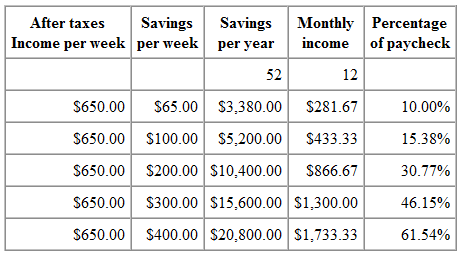What advice would we give to a veteran truck driver, Allen Smith asked during the 9/20/2012 Truth About Trucking Live BTR program?
 Vicki responded that she didn’t know but what we would want to receive advice instead.
Vicki responded that she didn’t know but what we would want to receive advice instead.
Why did she say that?
Her split-second reasoning was that a veteran is a “person who has had long experience in a particular field.”
An Assumption
In further consideration of the question and her answer after the show, Vicki recognized that she based her answer on this assumption:
in order for a trucker to have been in the industry long enough to be considered a “veteran,” he or she must be good at both trucking and saving money.
Consider that point for a moment.
Is that necessarily true?
As painful as it may be, we know it is not true that all veteran truck drivers are good at both trucking and saving money.
For example, Mike’s dad Ed was a very experienced trucker who did not have good money management skills.
As we previously described, he “died with $30 in his wallet and received a pauper’s burial.”
That’s pitiful but that’s reality.
On this page, we’re going to address various aspects of finances that veteran truckers may want to consider, especially if you’re not doing as well financially as you’d like.
It’s too late for Mike’s dad.
Please don’t let it be too late for you…
How Long Does it Take to be Considered a “Veteran Truck Driver”?
 In mid-2012, Vicki found a few YouTube videos produced by a guy who was giving his advice to the world about how to become a truck driver and how to get a better truck driving job.
In mid-2012, Vicki found a few YouTube videos produced by a guy who was giving his advice to the world about how to become a truck driver and how to get a better truck driving job.
He had about 4 months of truck driving experience and had had just about as many trucking jobs during that time.
Four months? Really?
Well, we’re glad he thinks he’s qualified to offer such profound advice.
We think he should have waited to give advice until after successfully driving a big rig through at least his first winter driving season.
(In some circles, finishing your first year of trucking is a big deal.)
But that raises a question:
How many years of professional truck driving experience does one have to have to be considered a “veteran truck driver”?
We’re not sure.
One resource Vicki found hinted that a veteran truck driver has more than 15 years of driving experience.(1)
We’re not sure where the author got that number.
We know that Allen Smith (AskTheTrucker.com, TruthAboutTrucking.com and TruckingSocialMedia.com) at one time described himself as a “35 year veteran of the industry with 4 million safe miles.”
Yep, by the time you rack up 35 years in the trucking industry, you can definitely be called a veteran truck driver.
So Allen is qualified to make comments about and proffer his opinion regarding truckers and trucking.
Allen made this excellent point in his article entitled “The 7 BIGGEST Mistakes by CDL Students and New Drivers”:
Keep in mind, that on any given day, there are veteran owner operators who are barely keeping their heads above water, financially.
truthabouttrucking.com/7-biggest-mistakes/ (no longer online)
If anyone ought to know, Allen would.
The truth of what he said is staggering.
And that’s just exactly the point we want to address on this page…
Veteran Truck Driver: The Need for Self-Evaluation
 Please stop for a moment to let us ask you this: If you’re a veteran truck driver, “What’s up the road for you?”
Please stop for a moment to let us ask you this: If you’re a veteran truck driver, “What’s up the road for you?”
Of course, we’re using that phrase “up the road” metaphorically to describe your financial future.
The same could be said for anyone in any career, but there are basically two aspects of your financial future:
- your earning years before you retire and
- your retirement years.
This is your opportunity for self-evaluation.
Let’s tackle these one at a time.
Veteran Truck Driver: Maximize Your Earnings in Your Trucking Career
We need to establish a foundation before asking some delicate questions.
We’re confident that you know that there are basically two “types” of professional truck drivers:
- “company drivers,” who drive a truck that belongs to their trucking companies; and
- “owner-operators” and “independents,” who drive their own trucks (or trucks they’re paying for).
There are probably plenty of both types of veteran truck drivers; in fact, some drivers may move back and forth between the two types.
Be that as it may, let’s briefly examine the case where both types of drivers are paid on a per-mile basis.
The per-mile income is different for these two groups.
Company drivers are paid significantly less per mile, but don’t have to worry about the cost of fuel, tires, truck maintenance, etc.
One of the lures of being an owner-operator is “being your own boss.”
Making the decision to drive your own truck is one that must be considered not just from an emotional, mental or psychological viewpoint but also from a financial standpoint.
First delicate question for a veteran truck driver:
Are you saving (after taxes and all expenses) as much money from being your “type” of professional truck driver as you would being the other?
There’s no doubt that an owner-operator earning $1.00 per mile is “earning” more than the company driver earning $0.35 per mile.
But after taxes and expenses, what’s left of that $1.00 per mile?
How much are you able to save?
For example, what if you save $0.02 per mile as an owner-operator but could save $0.05 per mile as a company driver?
We’re not saying that one is preferable to the other.
We’re only saying that if you drive a mile, how much can you save from it?
We’ve drawn pie charts at right to make this easier to visualize.
If you are one of the “veteran owner operators who [is] barely keeping [his or her head] above water, financially,” would it make sense to at least consider becoming a company driver?
We must confess that we have only ever been company drivers on a professional basis, so we don’t understand all that is involved, especially psychologically.
However, we have never once felt shame or like a lower class driver because we drove someone else’s rig.
When the rig needs fuel, new tires or repairs, that’s the company’s business, not ours.
Second delicate question for a veteran truck driver:
Are you earning as much money as your level of experience allows?
This is a multi-faceted question:
- One facet is the demarcation in pay between company drivers and owner-operators.In general,
- company drivers who are paid by the mile are often paid according to their years of experience (at least up to a certain max rate); and
- owner-operators are paid based on an agreed-upon per-mile compensation rate (no matter how many years they’ve been driving).
- A second facet is how you define success in trucking.Some professional drivers — especially some veteran truck drivers who have been in trucking a really long time — think that owning and operating a rig is the pinnacle of truck driver success.It’s a freedom thing.You get to choose your loads (even if you’re thrown in the same dispatch pool as company drivers).
- A third facet involves the changes you’re willing to make in order to make more money.Are you willing to
- move geographically,
- change trucking companies,
- change the type of rig you drive/haul,
- change routes or schedules,
- add aerodynamic gadgets on your truck to help you save more money on fuel, or
- make other changes to enhance your earning potential?
Third delicate question for a veteran truck driver:
Unless you can be guaranteed that you will drive a truck until the day you die (and we don’t think anyone can be guaranteed of that), what are you doing to:
- prepare for retirement?
- leave this world a better place than you found it?
- prepare for an unexpected event (accident, natural disaster, disease, etc.)?
- set up a financial legacy for your family?
Veteran Truck Driver, Please Take a Step Back
 An old and revered book tells us to observe the ways of the ant and be wise.
An old and revered book tells us to observe the ways of the ant and be wise.
While it has no overseer, this small insect prepares food and gathers provision in the proper season.(2)
Why does the ant do this?
Because there are seasons of growing and harvesting and then there are seasons when no growing or harvesting takes place.
Nature teaches us that there are cycles, a few of which are:
- day-time and night-time;
- the tide coming in and going out;
- people and animals breathing in and breathing out.
The old adage is to “make hay while the sun shines” or “Make the most of one’s opportunities while you have the chance.”
If you’re a veteran truck driver, you’ve evidently got something going for you.
You have been able to stay on the road as long as you have because you have the brains and backbone to do your job.
But what happens if your ability to do your job is somehow compromised?
We don’t want for this to be depressing, but we feel as though we owe it to all truckers, veteran truck driver or not, to ask you to please take a step back and address three realities that you may face on a daily basis on the road:
- near misses,
- truck crashes and
- lawsuits against truck drivers.
Even Veteran Truck Drivers Can Have Near Misses
If you search YouTube for phrases such as “truck accident near miss” you may find this video:
Some questions to provoke your thinking on this:
- What if the truck whose driver lost control had been closer? (There could have been a head-on collision.)
- What if the vehicle whose driver was recording the vehicle hadn’t swerved out of the way? (There would have been a collision.)
- What if another vehicle had been in the opposing lane of traffic when the recording vehicle swerved into it? (There would have been a collision.)
Obviously, this incident would have turned out much differently!
Even Veteran Truck Drivers Can Be Involved in Truck Crashes
You can be doing absolutely everything right on your end and be taken out through the actions of others.
In some video compilations of truck crashes, some of the accidents shown were the fault of the truck driver.
Some either may have been or were the result of driving too fast for conditions.
We’ve read of truckers who swerved to avoid a collision and ended up rolling over!
What if you had been the driver of a car that was plowed into from behind by an out-of-control truck?
We estimate that in cases where a truck was involved in a crash like some of these shown, the driver may not only have been badly hurt, but even lost his or her job.
If you had been a trucker who lost his job, would you have another career to fall back on?
Even Veteran Truck Drivers Can Be Named in a Lawsuit
In our increasingly litigious society, sometimes not only the victims but also the family members of the victims file a lawsuit against the truck driver and trucking company when the big truck is involved in an accident.
It doesn’t matter how many safe miles you have under your belt as a veteran truck driver before an accident.
An aggressive attorney can paint you negatively in a court of law (sometimes in front of a jury sympathetic to the victim) and win a huge settlement for the client.
If you haven’t protected yourself legally, you may find your finances badly eroded.
We’re including here a link to a book about making your own living trust — from Amazon.com, with whom we have an affiliate relationship.
Some people choose to protect themselves, their assets and their finances by setting up a living trust.
NOLO.com has this to say about a living trust:
A trust is an arrangement under which one person, called a trustee, holds legal title to property for another person, called a beneficiary. You can be the trustee of your own living trust, keeping full control over all property held in trust.
A “living trust” (also called an “inter vivos” trust) is simply a trust you create while you’re alive, rather than one that is created at your death.
Different kinds of living trusts can help you avoid probate, reduce estate taxes, or set up long-term property management.
nolo.com/legal-encyclopedia/living-trust-faq/ (no longer online)
Consult with your attorney for the best way to protect your finances.
As a veteran truck driver, you surely don’t want for your hard-earned savings to go down the drain.
Veteran Truck Driver, Are You “Driving Your Life Away”?
 Trucking has been good for us personally.
Trucking has been good for us personally.
By God’s blessing and good investments (which He also grew), we have been able to realize our dream come true, a piece of land and home completely debt-free.
We set a goal and by God’s good favor reached it.
Now, we have other financial goals.
Do you have financial goals?
How are you coming on reaching those?
A popular trucking song — “Driving My Life Away” — features the following refrain:
Oooooooh, I’m driving my life away
Lookin’ for a better way, for me
Oooooooh, I’m driving my life away
Lookin’ for a sunny day
Do you as a professional truck driver — “veteran truck driver” or not — feel that way?
What’s the “better way” and “sunny day” that you’re looking for?
Have you identified it?
- For some of us, trucking is a pleasure and we can’t think of ever doing anything else in life.
- For others of us, trucking is a means to an end and we look forward to getting out of trucking one day. It can be a really hard lifestyle and hard on one’s body.
Veteran Truck Driver, Are You Planning for Retirement?
None of us is getting any younger.
Like it or not, most of us will probably retire at some point and no longer bring in the kind of money we are earning during our “earning years.”
 Veteran truck driver, what are you doing to plan for that point in your life?
Veteran truck driver, what are you doing to plan for that point in your life?
There are plenty of retirement calculators online to help you answer the question,
“How much should I save for retirement?”
One of them has been developed by MSN Money.
To underscore the importance of this subject of planning for retirement, we’re going to pick a hypothetical weekly trucker income and calculate some numbers to help spur your thinking about what you’re doing with the income from all your driving.
(To personalize, substitute your own numbers and make your own calculations.)
All figures and calculations below are based on U.S. dollars in November 2012.
- Income and “Savings per week” are dollar figures.
- “Percentage of paycheck” is based on “Savings per week” divided by “After taxes income per week.”
- Multiply “Savings per week” by 52 to get “Savings per year.”
- Divide “Savings per year” by 12 to get “Monthly income.”

Some of these figures may be a bit ridiculous for American truckers, especially for those who have a home support team back home.
But we’ve put them here to prove two points for veteran truck drivers (and really truck drivers at any stage of their trucking careers):
- If you have not yet begun to save for retirement, now is the time to start.
- If you’ve been diligently saving money week after week, month after month, year after year, you want for it to grow in value, not erode.
The shocking thing about this exercise is that you as a veteran trucker can save hard all year and then spend all of it pretty quickly (even if you spend at a reduced rate compared to your earning years).
You need a long term saving plan to be ready for multiple years of retirement with no income.
Do not forget about the effect of inflation on your savings.
If inflation takes away more than you can earn in interest, your savings are dwindling away and you may want to put your money in a safer investment.
Veteran Truck Driver, If You Fail to Plan, You Plan to Fail!
You may have heard the quote: “He who fails to plan, plans to fail.”
As a veteran truck driver, we know that you know how to plan your trips.
You need to pick up a load at Point A, take a certain route and get to Point B before or right at your appointment time.
Extend that same mentality to your budgeting and saving.
 As an experienced trucker, answer these questions for yourself:
As an experienced trucker, answer these questions for yourself:
- What am I saving my money for?
- What returns do I expect it to make?
- What goals have I set (or do I need to set) to help me get to the place I want to be?
Are you an experienced truck driver who is depending on any government system to fund your retirement?
If so, you may come out on the short end of the stick.
As of November 2012, numerous countries around the globe are facing financial difficulties.
Don’t be the person who finds out he needs X amount, but only has Y amount (significantly less) to live on, as shown here.
While you still have a job, do your part to prepare now to make life “up the road” more like a feathered nest than a rude fall to the ground.
Veteran Truck Driver, Make More Money and Save More Money
Everybody knows that most professional truck drivers are limited as to the amount of money they can make.
All of these factors taken together can cap your income:
- Hours of Service
- Your truck’s top speed (possibly governed)
- Speed limits
- Terrain
- Traffic congestion
- Road construction
- Bad weather
- Accidents
- Load availability
- Condition of truck and/or trailer
- Your personal needs and
- Other factors.
To conclude, your earning potential as a trucker is limited.
If possible, look for ways to make money that aren’t limited.
Also, looking for ways to save money.
(There are lots of them on this website.)
Years ago, Mike met a guy named Steve whose wants far exceeded not only his needs but also his earning potential in trucking.
Mike gave him some advice to help him reduce his self-imposed financial stress.
Some folks have so simplified their lifestyles so as to “need” less to live on.
We encourage you to examine your needs versus your wants.
![]() Money saving tip: Whether you are a new or veteran truck driver, if you have not yet learned how to budget, start by listing all of your expenses for the past month (or if you don’t have all of your receipts, the current month) in a spending diary.
Money saving tip: Whether you are a new or veteran truck driver, if you have not yet learned how to budget, start by listing all of your expenses for the past month (or if you don’t have all of your receipts, the current month) in a spending diary.
You can download and use the one we designed in our Free Downloads.
Once you have listed your expenses, assign them into categories.
Find out what you’re spending in which major categories.
Then set up a budget based on your categories.
See if there are some areas where you’re spending too much or too little and make adjustments.
Remember: a budget is a spending guide.
It can be flexible; don’t make it your strait jacket.
However, if you find yourself constantly making changes, re-evaluate your budget to see if it is realistic for you.
Get out of debt — now.
Then start to save as big a piece of your paycheck as possible.
Put your savings into investment vehicles where you can preserve your wealth or grow it.
Make your money work for you instead of eroding away.
Learn ways to legally protect your investments and choose the one that works best for you.
Return from Veteran Truck Driver: What’s Up the Road for You? to our Budgeting page or our Truck Drivers Money Saving Tips home page.
Reference
1. everytruckjob.com/TruckingBlog/average-truck-driver-salary/ (no longer online)
2. Proverbs 6
















